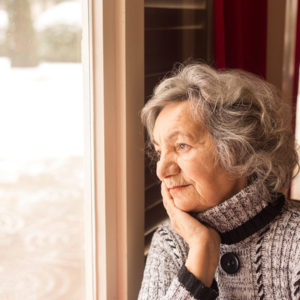
Though a time of celebration, the holiday season is going to be very different this year without large family gatherings and seeing loved ones face to face. But aside from COVID-19’s protocols, the holiday season is one of the hardest times of the year for many, and feelings of sadness, loss, or isolation are very common.
The days become cold and short, less light for Vitamin D, there are fewer nutrient-rich foods around and it’s harder to get exercise than in the nice months. Couple this with the pandemic, the intense pressure to be cheerful even for those of us who may not celebrate the holidays, and the complicated feelings we may have about past holidays, it’s all a recipe for high anxiety and suffering from a type of depression called Seasonal Affect Disorder, or SAD.
Depression is the most common ailment in those aged 60 and over. People suffering from SAD can set themselves into a depression and cannot get into the holiday spirit. Here are some positive steps that may help you feel healthier this year.
- Acknowledge your feelings and let yourself off the hook. It is okay to not feel like a holiday card all the time.
- Reach out. Being alone and lonely are not the same thing but if you are feeling particularly isolated, please seek out your friends and families for support. Just because you cannot be with loved ones physically does not mean you cannot chat with them over the telephone or electronic device.
- Do not abandon healthy habits. Be kind to your body and mind by maintaining your self-care practices. Eat well and get plenty of sleep.
- Create your own traditions. If the loss of old traditions is making you glum, adapt them to your new life circumstances or build something new.
- Seek professional help if you need it. You may find it empowering to face the winter holiday season with your own health and wellbeing in mind. However, despite your best efforts, you may feel persistently sad or anxious, unable to sleep, and dismayed by even routine tasks. If these feelings last for a while, ask for help.
Through its Home Care Program, Mystic Valley Elder Services (MVES) operates a Mobile Mental Health program for consumers who need professional mental health services but are unable to leave their homes for treatment or counseling. Through its Mobile Mental Health program, clinical caseworkers provide outreach to elders experiencing mental health conditions that impact their functioning and ability to get their needs met. MVES also offers through its Home Care Program a Social Engagement Program that is designed to help improve the health and well-being of isolated older adults in the community by providing meaningful social connection — whether it be through weekly telephone calls, regular visits (when safe to do so), or emails by friendly volunteers. You are not alone and we can help. To find out more about this program, call us at 781-324-7705.
